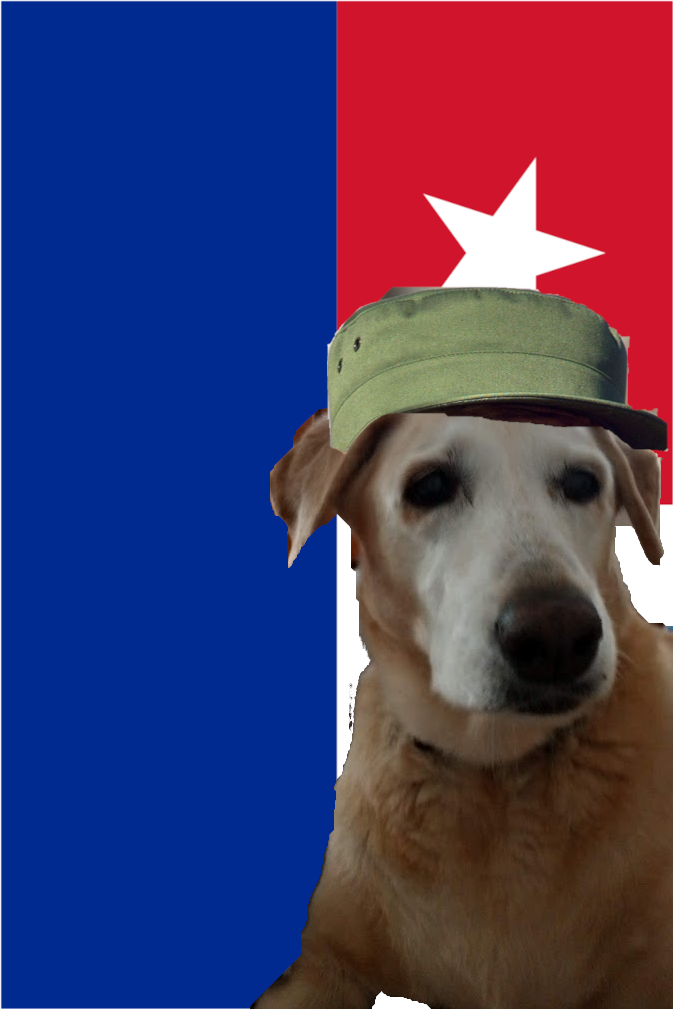I nominate Nikita Krushchev to be the most important figure in the cold war, literally playing 3d chess with a bloodthirsty imperialistic regime and preventing nuclear war.
Commenting on Kennedy’s government giving the OK to launch the Bay of Pigs attack on Cuba:
“ If you did this as the first step towards the unleashing of war, well then, it is evident that nothing else is left to us but to accept this challenge of yours. If, however, you have not lost your self-control and sensibly conceive what this might lead to, then, Mr. President, we and you ought not now to pull on the ends of the rope in which you have tied the knot of war, because the more the two of us pull, the tighter that knot will be tied. And a moment may come when that knot will be tied so tight that even he who tied it will not have the strength to untie it, and then it will be necessary to cut that knot, and what that would mean is not for me to explain to you, because you yourself understand perfectly of what terrible forces our countries dispose.”
-the man himself
All the spies who gave information on nuclear weapons to the Soviets were unsung heroes. Just imagine what that whole period would've been like with an extremely aggressive
 if the USSR hadn't developed nukes as soon as possible.
if the USSR hadn't developed nukes as soon as possible.America as the sole nuclear power.. there would have been a lot more usage of nuclear arms.
Afaik the Cold War was really a war between air force generals who wanted to kill every human being on the planet and slightly less monstrous Americans who thought that inciting a nuclear war would be a bad thing.
Totally bonkers. A literal doomsday cult full of solipsistic fascist and they've got nukes.
A world where the bourgeoisie are the sole owners of nuclear power. I can only imagine.
It’s actually kind of wild that those in control of the nuclear NATO countries aren’t trying to get every nuclear armed country with range into an alliance (China, Russia, mainly)
As the main blocker of nuclear weapons usage is someone else with nukes will be mad.
The Soviets didn’t need nor did they really benefited from the leaked intelligence.
Beria who oversaw the Soviet atomic bomb project (ENORMOZ) was too paranoid that he used the intelligence and played it off as “hey, we got some data here from the other institutes, can you check for us and see if they’re correct?”
Essentially, just to double check for confirmation, but the Soviets were already on the right track and they would have gotten the bomb without delay, with or without the leaked intelligence.
Sometimes people underestimated the Soviet Union. They pretty much started the space program from scratch (with some help from German scientists from adjacent fields) while the Americans got the full package of the Nazi V-2 team, the entire leadership, intact rockets, full documentation, launch vehicles and entire support crew, and still lost to the Soviet Union in launching the world’s first ICBM.
The Soviets didn’t need nor did they really benefited from the leaked intelligence.
Beria who oversaw the Soviet atomic bomb project (ENORMOZ) was too paranoid that he used the intelligence and played it off as “hey, we got some data here from the other institutes, can you check for us and see if they’re correct?”
Having data to cross reference is a big deal idk how you could actually believe that's not a benefit
I hate to quote reddit but this post on r/askhistorian answered by Alex Wellerstein, a historian who wrote a book on the US nuclear secrecy, had a detailed answer:
The question is always, how much time was saved by the espionage? And that's not something that's easy to answer. They did not just take the espionage information and do what it said to do. Aside from the fact that most the work of the bomb did not involve the kind of things they got espionage on — they mostly got espionage on warhead design, and that is only one tiny part of the overall difficulty of making an atomic bomb — they also did not use the espionage information in a way that maximized efficiency and time. They used it in a way which maximized their confidence that they were going in the right direction, which is not the same thing, because the heads of the program didn't entirely trust either the espionage sources or their own scientists. So the espionage information became a directional guide and "check" more than a strict plan to copy.
They also had sources of information other than espionage that frequently get overlooked. The Smyth Report, for example, was an official history of the Manhattan Project that was developed in parallel with it, and released a few days after the Nagasaki bombing. It contained no "secrets" of the sort that the espionage was concerned with — e.g., details of bomb designs — but it contained exactly the kind of information you'd want to know if you were planning a large-scale project: what sorts of facilities were developed, what methods for making the bomb fuel and other necessary materials proved to work, what the general size and scope of the operations were, how all of those things translated into actual bombs as a timeline. The Soviet atomic bomb project was very explicitly modeled on the Manhattan Project as reflected in the Smyth Report.
The single activity that set the "timeline" for the Soviet bomb project most specifically was the acquisition of raw uranium resources and the turning of it into fuel. Not what we think of as the "scientific" work behind developing the warhead itself (e.g., determining the amount of fuel needed for the weapon, determining how to make it react). In fact, the Soviet scientists (who by and large were not even aware there was espionage information; what info they got was "sanitized" and filtered to look like it came from other Soviet labs) came up with more advanced weapon designs than the 1945 US ones, but were prevented from using them for the first test because the head of the project (Lavrenty Beria, Stalin's spymaster) wanted the first test to be a guaranteed success.
They also didn't use the espionage to "cut corners." If the espionage suggested that a value was X, they checked if it was really X. If it said, method Y doesn't work, they still looked into method Y. Both because they didn't trust the information entirely (Beria was not a trusting fellow) and because it's possible the US erred in some places (which, in fact, it did — the US concluded that the gas centrifuge method of enrichment couldn't really be made to work well, whereas the Soviets, using a team of German-Austrian engineers, managed to get it working, and the modern Zippe-type centrifuge is descended from the Soviet method, not the US approach).
All of which, to me, suggests that they would have been fine without the espionage information, and that you are not talking about a big difference in time to completion with or without it. The Soviet scientists were also able to keep close base with the development of the hydrogen bomb, the successful version of which they developed independently of espionage information, which again to me points to the idea that they were not in any way "inferior" in this respect.
At the same time, those scientists didn't know that and still risked everything to ensure the soviets got their information.
you're making some argument about whether or not it was a benefit reducing time to completion, I am saying it is a benefit because that is literally how science works
If the espionage suggested that a value was X, they checked if it was really X. If it said, method Y doesn't work, they still looked into method Y.
that's called peer review dawg, which you can't do with nothing to review
I thought Molotov was entrusted to oversee the R&D of the Soviet Nuclear project, or at least I remember reading that in his memoir or something along those lines
The list of people who comprised Special Committee No. 1 (Atomic Weapons) formed on 20 August 1945:
- L. P. Beriya (Chairman)
- G. M. Malenkov
- N. A. Voznesenskiy
- B. L. Vannikov (Deputy Chairman)
- A. P. Zavenyagin
- I. V. Kurchatov
- P. L. Kapitsa
- V. A. Makhnov
- M. G. Pervukhin (Deputy Chairman)
Together with Special Committee No. 2 (Reactive Technologies) and No. 3 (Radar Council) were the three Special Committees formed under Stalin immediately after the war to achieve fundamental breakthrough in new weapon technologies.
I'll have to reexamine where I heard my stuff, I may have just confused Molotov with Malenkov.
They pretty much started the space program from scratch
Just want to add that Russian rocket experimentation actually predates the Soviet Union by a decade or so. IMO if the Soviets had prioritized them, they could have had V2-sized rockets before the Germans (but not prioritizing them was the right move, considering how useless the V2s ended up being in the grand scheme of things).
Not by that much. Quote from Boris Chertok’s Rockets and People, Vol. 1:
Before 1945, neither we, the Americans, nor the Brits had been able to develop liquid-propellant rocket engines with a thrust greater than 1.5 metric tons … the Germans had successfully developed and mastered a liquid-propellant rocket engine with a thrust of up to 27 metric tons - more than eighteen times greater! What is more, they had produced these engines in large-scale series production by the thousands! And the automatic guidance system! It was one thing to fundamentally and theoretically show that for the given level of technology it was possible to control a missile’s flight and consequently the engine mode in flight at a range of 300 kilometers; it was quite another thing to put this into practice and bring the entire system up to a level suitable for acceptance as an operational armament!
But you are correct in that not prioritizing them was the right move. The Soviets prioritized on solid fuel rockets and the result was the Katyushas that wreaked havoc on the German army. Focusing on developing V-2 like rockets would have been useless fighting against Nazi Germany.
Imperial Japan was getting shipments of Uranium from Germany, and they had a nuclear research base which was fully taken over by the Soviets
There's a chance that some of the technology that went into the Soviet nuclear arsenal, and by extension every subsequent arsenal except for US/Eng/France, was Japanese
And JFK still went ahead with Bay of Pigs invasion and botched it. That guy must've been brainless longer than previously thought. Castro and the Cuban Revolution deserve the credit for successfully repelling the attack and preventing the need for full escalation.
Im endlessly annoyed by the JFK worship irl and online, even amongst my fellow countrymen/women. JFK was a moronic womanizer, who stumbled his way from one scandal to the other. When the Cuba crisis happened he was pumped with drugs and constantly high, its a miracle the ugly dickhead didnt plunge the world into hell. Yet SOMEHOW he gets credit for ending the crisis?? Give me a fucking break.
Actually someone should write and effort post about the JFK couple derangement syndrome, especially those raving about his "good looks". Like what good looks?? They were both ugly as fuck??
Reading some of the behind the scenes accounts of the Cuban missile crisis is absolutely blood chilling. We came so close.
and somehow the only one that gets mentioned is the soviet submarine capitain
I think it was the Political Officer not the Capitain. I think the top 3 officers (Capitian Executive and Political) all had to agree and the 3rd highest the Political said no. But I could be wrong
Yeah hearing meeting minutes straight out of Dr. Strangelove was very unsettling during the second season of Blowback.
When we were doing this lesson in high school, my class agreed Khrushchev contributed the most to ending the crisis
Khruschev had plenty of flaws but he was also the last truly internationalist leader of a major socialist power so I give him credit for that.
Brezhnev get some props for the doctrine, in the light of what happened in Poland in 1980-81 it prolonged socialism for a few years and that's something.
"If the United States insists on war, we'll all meet in hell." _ Nikita Khrushchev.










